“Speak softly and carry a big stick,” was the diplomatic advice of one-time US President Theodore Roosevelt. In Turkey, there are reports this year that it is the diplomats themselves that are experiencing the big stick. Ever since the attempted coup of 2016, Turkish President Recep Tayyip Erdoğan has become increasingly autocratic and unwilling to listen to others. Anyone who stands against him or criticises him can expect harsh reprisals, and that includes his own diplomatic corps. In much the same way as Josef Stalin inexplicably turned against doctors late in life (which may have hastened his death), President Erdoğan has organised a series of purges, with the country’s diplomats becoming the latest victims. Even the Ankara Bar Association has backed claims that a number of the 550 diplomats purged since 2016 have suffered torture at the hands of security forces. A report by the Association claimed that former Foreign Ministry employees have been beaten, threatened and sexually violated in detention. “When the statements are evaluated as a whole, they confirm that the individuals were subjected to blows, torture which does not leave marks and ill treatment,” the report claims. Those arrested are accused of having cheated in their entrance exams, although as this involves a 4-hour interview in English, it’s hard to see how they could have done it. Erdoğan believes in the “big stick” approach. Perhaps he has taken too much to heart another pearl of diplomatic wisdom from Theodore Roosevelt: “If you’ve got them by the balls, their hearts and minds will follow.” This is just the latest inexplicable chapter in the unfolding saga of Turkey’s international relations that at one time looked so promising.
Helsinki,December, 1999; there was deep snow outside the large conference buildingand an impressive ice sculpture just in front of the main entrance. Helsinki was very cold when it greeted theheads of state and government as well as themedia circus for the EU summit. As usual, it was a 2-day event, with the Council agreeing on the first day to accept Turkey as a candidate for full EU membership – a considerable breakthrough. It had applied to join the EU’s predecessor organisation, the European Economic Community, in 1959 and signed an Association Agreement in 1963, the so-called Ankara Agreement. However, in 1999, Ministers had raised Turkish hackles by insisting that further human rights reforms would be needed and that disputes with Greece should be referred to the International Court before Turkey could join the club for real, although Turkey would become a candidate on the same basis as the other states lining up to join. The then EU foreign policy chief, Javier Solana, promptly flew to Ankara to reassure the Turks and on the afternoon of day 2, the Turkish Prime Minister of the time, Bülent Ecevit, arrived to a warm welcome; warmer, it seemed, than he had expected and certainly much warmer than the freezing temperatures outside. This was a potentially Earth-changing development. Those of us in the media were surprised and pleased to see him; press photos and video of the event show him surrounded by smiling journalists and camera crews, as well as officials. It seemed like the start of a new, better relationship between Ankara and Brussels. Alas, a lot can happen in twenty years, and unfortunately it did.
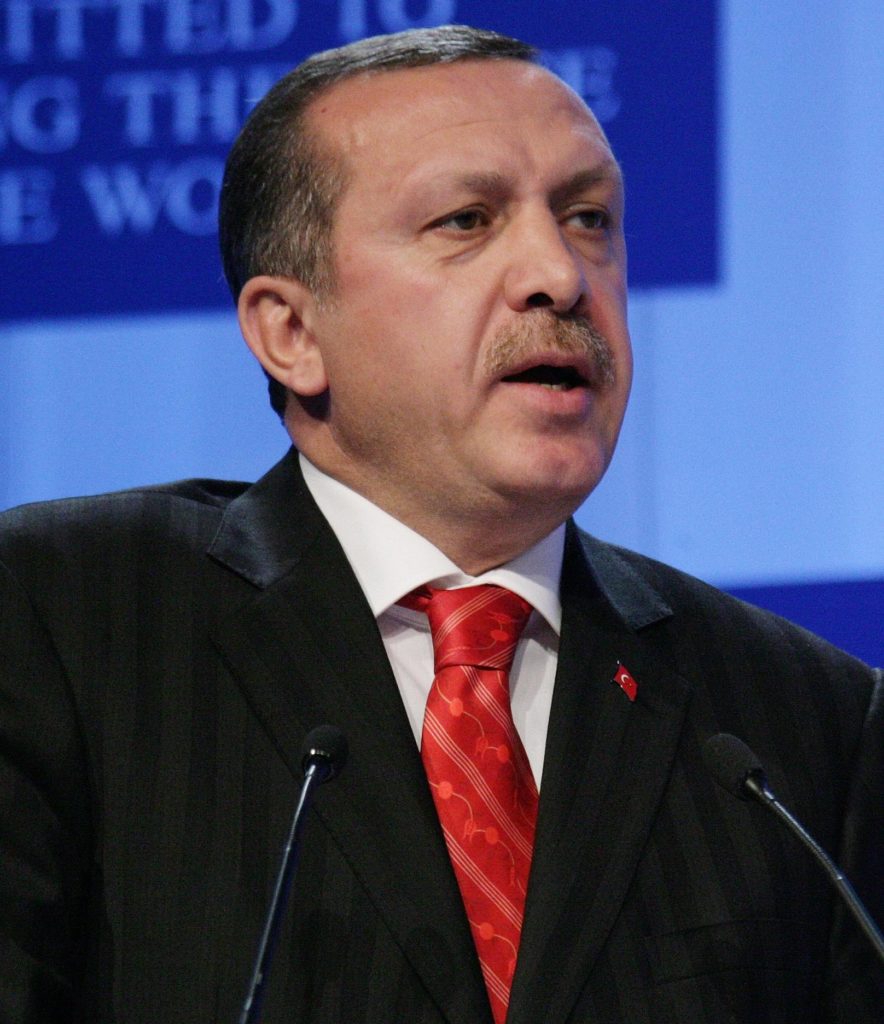
SLOW PROGRESS
Negotiations for membership opened in 2005 but by May, 2016, only sixteen of the thirty-five chapters required for accession had been opened and only one of them closed. Progress was even more glacial than the weather at the Helsinki summit. It has got much worse since the attempted coup of 2016 which Erdoğan blamed on the Islamic movement headed by Muhammed Fethullah Gülen, once considered an ally of Erdoğan’s AKP party. The coup was quickly crushed but the recriminations have continued ever since as the government took its revenge. More than 125,000 people working for the government, in education, the media and in private companies were prosecuted; many were later sacked. Additionally, over 60,000 people were arrested, some of them allegedly denied a fair trial. According to a report by the US-based NGO Freedom House, “Since the attempted coup, at least 1,500 civil society organizations have been summarily closed and their property confiscated.” The organisation has downgraded Turkey’s status from “partly free” to “not free”, and the report goes on to warn that many of the human rights taken for granted in the West have been severely eroded. “The prosecution of journalists and closure of media outlets continues. Arrests based on messages shared via social media are common, leading to widespread self-censorship and a general chilling effect on political discourse,” the report says.
During the purges, university campuses were raided and many students arrested for holding anti-war beliefs. Erdoğan even talked about restoring the death penalty, which would have been totally unacceptable to the EU and could theoretically have led to the country being suspended from the Council of Europe, which it joined in 1949 as one of the earliest members. Remarkably, throughout this, negotiations on Turkey’s accession to the EU have continued, despite some EU member states having serious reservations about Turkey ever meeting the commitments of the “acquis communautaire”, the accumulated body of law first established in 1958 and which every member state is required to meet. The more doubtful governments have proposed striking an economic agreement with Turkey instead, or even adopting whatever sort of relationship between Britain and the EU emerges from the torturous Brexit negotiations, assuming that there is one. It’s somewhat ironic, given that one of the principle arguments used by those campaigning for a “leave” vote in Britain’s referendum was that Turkey was about to join the EU and that millions of Turkish immigrants would soon be arriving in the UK. It was, like many of those claims, a lie.
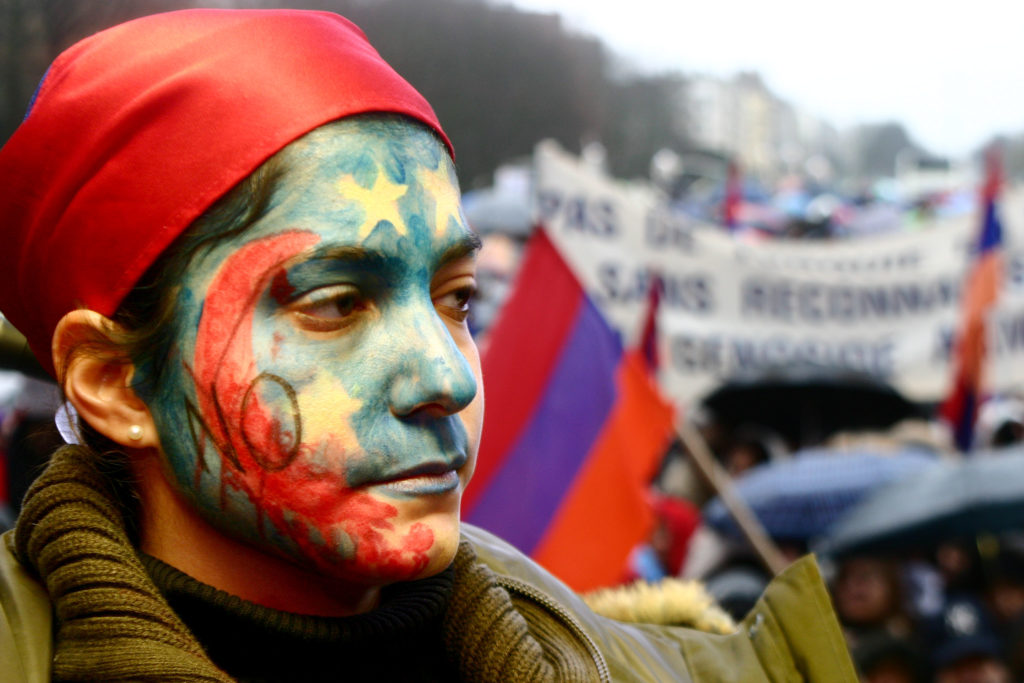
CHILLING TIMES
The recent arrests and torture of diplomats have caused shock and disbelief. According to one former diplomate, 550 have been purged since 2016 and 15 of them have now suffered torture. Bahadir Gülle, who claims to be one of the 550, tweeted that many of them, accused of incompetence and cheating in their entrance exams, have degrees from Harvard, Oxford, Columbia and Johns Hopkins, among other leading universities. “There were five diplomats in MFA (Ministry of Foreign Affairs) Turkey graduated from Harvard,” ran the Tweet, “all of them either fled the country or ended up in jail. My dear colleagues are arrested on baseless charges and some of them are subjected to torture. They and I are accused of being incompetent. Many of my friends have much better CVs than mine.” His story was reported at length in the Washington Examiner in June of this year.
The report from the Ankara Bar Association makes chilling reading, which is why I am including a large section of it. The arrested Foreign Ministry staff were, it claims, made to endure a catalogue of abuse by security forces at the Financial Crimes Investigation Bureau: “beating the detained until they pass out, making them watch the ones harassed and tortured, at least four incidents of torture incompatible with human dignity, referral of a beaten diplomat to hospital and the failure of the doctors to report it.” The Bar Association team met just six of the detainees, but their horror stories were remarkably consistent: “All of the six people that were met stated that they were brought to meetings under the name of ‘interviews’, forced to be confessors and subjected to threats and insults. They indicated that they were taken to interviews more than once and subjected to psychological pressure during the interviews. They added that they can identify the interviewers if they see them.
“Five of these six people stated that they were subjected to torture and ill treatment outside these interviews. One person recounted the incident of torture that s/he witnessed. Five people who have asserted that they were subjected to torture and maltreatment in detention have recounted the following: They were taken from the prison wards where they were held and brought to somewhere at the ground floor of the Financial Crimes Investigation Bureau of the Ankara Provincial Directorate General of Security; they were forced into a room with ‘No entry’ written on it and taken to a dark room afterwards; the ones who brought them to this dark room went out and other people, whose faces they could not clearly see due to darkness, entered the room; the newcomers forced the detained against the wall, closed their eyes, handcuffed them from behind and forced them to kneel; after making them crawl on the floor, they beat them and threatened with sexual torture.”
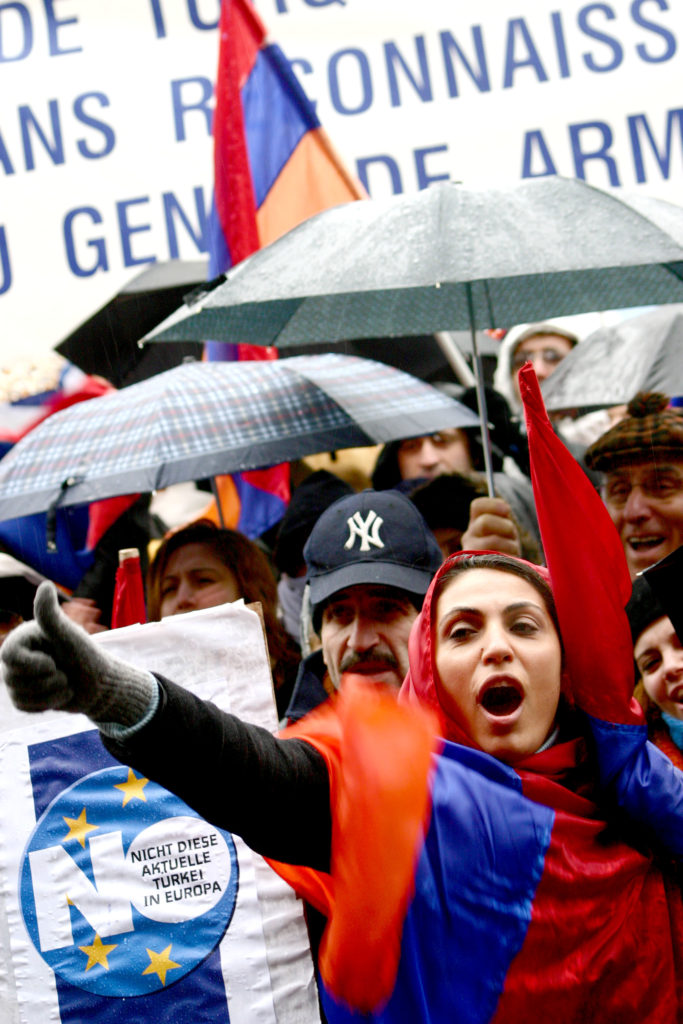
OFFICIAL CENSURE
None of this seems like the behaviour of a civilised country which is a founding member of the Council of Europe and a signatory of the European Convention on Human Rights. President Erdoğan now seems to believe he is no longer bound by his or his country’s promises and undertakings, nor the accepted standards of diplomatic behaviour. The Council of Europe’s Commissioner for Human Rights is critical of Turkey’s judicial system. “Turkey must take urgent and necessary measures to re-establish trust in its judiciary and repair the damage inflicted on the rule of law during the state of emergency and its aftermath”, said Dunja Mijatović, in a report following a recent five-day visit to Turkey. The Commissioner wrote that the independence of the Turkish judiciary has been “seriously eroded”, including through constitutional changes regarding the Council of Judges and Prosecutors which are “in clear contradiction with Council of Europe standards, and the suspension of ordinary safeguards and procedures for the dismissal, recruitment and appointment of judges and prosecutors.” As a result, “the existing tendency of the Turkish judiciary to put the protection of the state above that of human rights was significantly reinforced, and the criminal process appears to often be reduced to a mere formality, especially in terrorism-related cases. In countless other cases, the judiciary is literally bypassed even for measures seriously affecting individuals’ core human rights, such as certain travel restrictions or the right to practise as a lawyer”, the Commissioner said. Her report accepts that Turkey has a right and a duty to fight against terrorism and crime, such as the attempted coup d’état of 15 July 2016, but not at the expense of the human rights of its citizens. She is especially critical of the widespread use of hostile political actions, smear campaigns and criminal proceedings against human rights campaigners. “These proceedings, combined with a wanton use of pre-trial detention, unjustly upend many persons’ lives in Turkey, including many human rights defenders. As a result, all of Turkish society is subjected to a profound chilling effect,” she wrote.
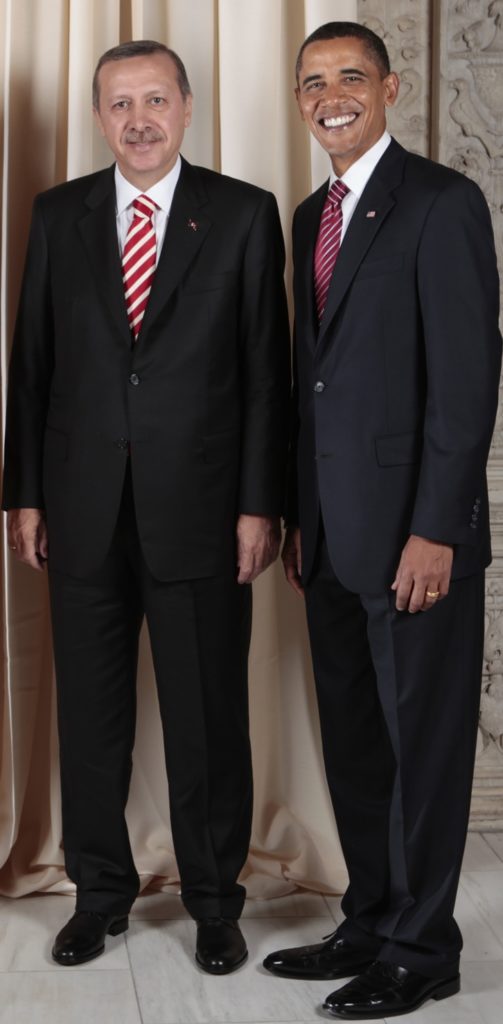
It wasn’t always like that. While Turkey held the rotating presidency of the Council of Europe’s Committee of Ministers, it pushed hard to get agreement on what became known as the Istanbul Convention. It is the Council’s Convention on preventing and combating violence against women and domestic violence, signed in 2011 by forty-six countries plus the EU. The energy and determination shown by the Turkish delegation was an object lesson in how to get good human rights legislation onto the statute books of the various member states and into law. What Turkey pushed for – and got – has been described as the most comprehensive legal framework in existence to tackle violence against women and girls, covering domestic violence, rape, sexual assault, female genital mutilation, so-called honour-based violence and forced marriage. It was a wonderful achievement in the face of fierce opposition from some governments, especially those on the political right. Not every country that signed has yet ratified the Convention, their reasons seldom linked to the actual welfare of women who suffer at the hands of violent husbands or families.
A TIGHTER GRIP ON POWER
But those halcyon days of widespread approval and congratulation are now a distant memory. First came the attempted coup and the vicious response to it. Then came Erdoğan’s power grab with a new constitution, adopted in 2017, to centralise power in the hands of the elected President, the rôle of Prime Minister having been abrogated. The constitutional change followed a controversial referendum that helped to sour Turkey’s relations with the EU. At the time, The Office for Democratic Institutions and Human Rights (ODIHR), which is the principal human rights institution of the Organization for Security and Cooperation in Europe (OSCE), was highly critical of the way in which opponents of the change were denied fair access to the media while civil society organisations were excluded from taking part in the debate. Turkish officials tried to win over its citizens living overseas, even though this is illegal under Turkish law. Seeking to get agreement for the proposed changes, they tried to organise rallies in The Netherlands, especially Rotterdam, which is home to some 400,000 Turks, but Dutch authorities imposed travel restrictions and refused landing permission to a ¢plane carrying Turkey’s Minister for Foreign Affairs, Mevlüt Çavuşoğlu. Erdoğan’s reaction was extraordinary. He called the Dutch “fascists”, “remnants of Nazism” and accused them of massacring Muslims in Srebenica during the Bosnian war, something that is widely known to be a fabrication. The Dutch peace-keepers had failed to prevent a massacre by a far greater force of Serbian troops but took no part in the killings. Erdoğan had elevated a diplomatic disagreement over political campaigning in another country into an ugly incident of name-calling, outright lies and attempts to out-manoeuvre a fellow-member of NATO whilst apparently trying to abuse its hospitality. He appears to have little control of his own volatile temper, linked with an ability to inflame his more radical supporters: a potentially dangerous mixture.
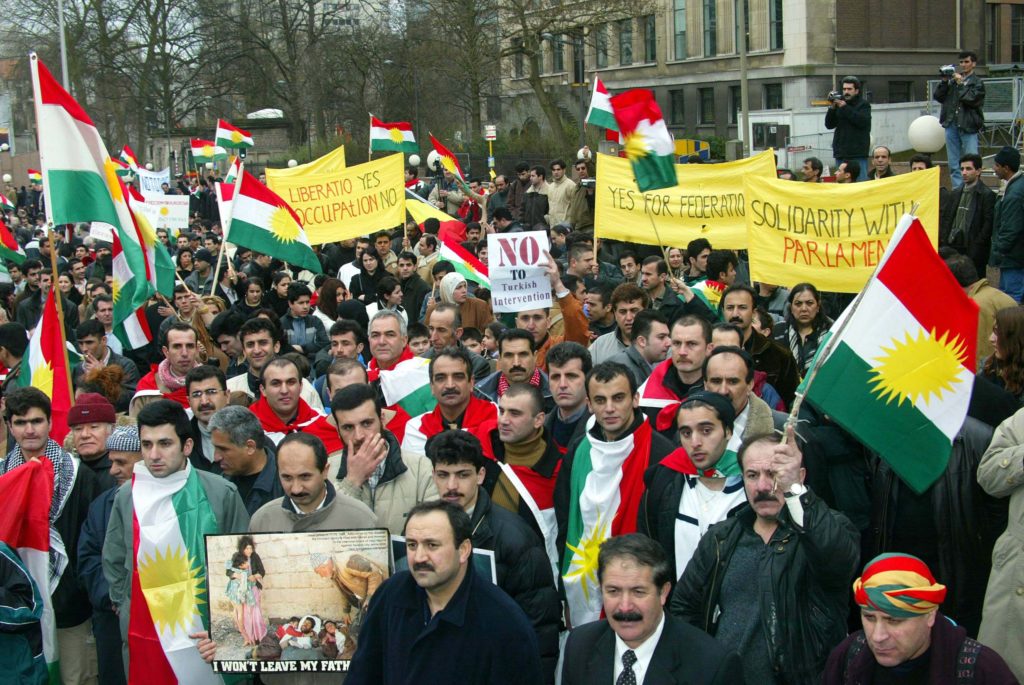
In 2017, the Parliamentary Assembly of the Council of Europe (PACE) voted to reopen its monitoring procedure on Turkey, concerned about its human rights record. A condition of joining the EU is for PACE to consider such monitoring unnecessary, so the decision precluded any further progress on EU membership. Following the referendum, which granted Erdoğan his constitutional changes, he and his AKP won both the presidential and legislative elections in 2018. Again, he faced criticism from the OSCE/ODIHR for denying his opponents fair access to the media. His ideas of democracy fall woefully short of what many in the West have come to expect.
And yet, when I travelled to Nevşehir in Cappadocia in 2003 to make a TV feature on the European Convention for the Prevention of Torture and Inhuman or Degrading Treatment or Punishment, Turkey seemed relatively open and unintimidating. I met and interviewed the person charged with teaching the police to use humane methods and not to beat the prisoners as had been commonplace, especially in rural police stations. Perhaps surprisingly, she was Greek. Together with a French cameraman and sound recordist, we visited Nevşehir’s high security prison, accompanied by the region’s governor, a very impressive woman, where we were introduced to prisoners and shown the exercise yards, workshops, classrooms and various cells. In one, a large two-story cell with a downstairs kitchen, we met a drug baron who was famous for having escaped from a Dutch prison by helicopter, together with two fellow-inmates, one of whom offered us tea. With the governor interpreting, we chatted freely and, when the tea-maker returned with our refreshments, he joined in. It was all very free and easy and we drank our tea and ate biscuits together. Afterwards, I asked the governor why the man making the tea was in prison. He was a mass poisoner, she told me. Oddly, the whole visit was so relaxed it didn’t seem strange, although we never met the PKK prisoners held in an area of the prison where they refused, we were told, to participate in lessons or work.
PROBLEM? WHAT PROBLEM?
Within Turkey, the media has come under enormous pressure since the failed coup. Many media outlets have come under the control of corporations with links to the AKP. Leading journalists have been arrested and opposition papers and TV or radio stations have been taken over by pro-government bodies. Freedom of speech has been restricted, local government has come under close supervision and local mayors have been replaced by Erdoğan appointees. After years of economic growth, the Turkish lira has plunged in value, falling 45% in value against the dollar between January and August last year and a further 14% since. Much of this is down to deteriorating relations between Ankara and Washington. That is, in part, because Turkey wants to extradite the Muslim cleric, Muhammed Fethullah Gülen, whom it blames for the failed coup and who lives near Saylorsburg, Pennsylvania. The US also supports Kurdish armed groups in the north of Syria; Turkey is bitterly opposed to them. The disagreement almost led to fighting between Turkish and American forces at one point. Additionally, Turkey arrested a Turkish employee at the US consulate-general, leading to the temporary suspension of US visa services in Turkey. Washington also imposed sanctions after Turkey imprisoned an American clergyman, Andrew Brunsen, whom they accused of terrorism.
Back in 2015 Turkey turned to its NATO allies for support against Moscow after a Turkish F-16 shot down a Russian warplane over its territory. More recently, though, Erdoğan has been cosying up to Vladimir Putin, a man who perhaps appreciates dictators more than Donald Trump can be seen to do. As a show of his new allegiance, Erdoğan has ordered the S-400 missile system from Russia. Turkish forces have been in Russia, being trained in how to use it. It’s a very strange move for a NATO member and it means Turkey has now been excluded from the consortium producing the F-35, America’s most advanced fighter jet, in which Ankara has already invested $1.4-billion. The Americans fear that allowing the deal to continue would have enabled the Russians to learn more about the F-35 than is safe. Erdoğan’s grasp of economics is not impressive either: he has long pushed for lower interest rates, which he believes will reduce inflation, despite being warned that it will have the opposite effect. To achieve his aims, he sacked deputy prime minister Mehmet Şimşek as Minister of Treasury and Finance and replaced him with his own son-in-law, Beret Albayrak. It has done nothing to restore international confidence in Turkey’s economy.
BACKING THE WRONG HORSE
Just to add to the list of miscalculations, Erdoğan has endorsed a new school book which attacks the EU as a “Christian club” and blames Washington for inciting the 9:11 attacks by deciding which countries to reward and which to punish. A photograph of EU leaders with the Pope is cited as evidence that Western Europe is “hostile to Islam”. In some ways, Erdoğan may have a point with that one: both Austria and France have said they would hold a referendum on whether or not Turkey should be allowed to join. There is a certain amount of Islamophobia in Europe which a series of terrorist attacks by militant jihadis not linked with Turkey has done nothing to mitigate. Additionally, some Brussels insiders admit to an atmosphere of “Erdoğan fatigue”. There is an ongoing dispute about Turkey drilling for gas in the waters off Cyprus, an EU member state, on behalf of the Turkish-run entity of Northern Cyprus, not recognised by the EU or any other country, yet Turkey wasn’t mentioned at all during the first meeting with the European Commission’s new President-elect, Ursula von der Leyen. The EU has been accused of burying its head in the sand over the issue, but then it cannot afford to upset Turkey because of Europe’s problems with immigration. The 2016 agreement between Brussels and Ankara is aimed at returning to Turkey all those asylum-seekers arriving from there on Greek islands or the mainland. Turkey would also take steps to prevent migration across its territory, receiving €3-billion to help pay for the problem with more to come if necessary whilst the EU would grant entry visas more readily to Turks. The European Parliament criticised the arrangement as “outsourcing” the refugee crisis and now Erdoğan has threatened to revoke the deal in response to minor EU sanctions over the drilling issue.
Furthermore, Turkey has defied an embargo imposed by the United Nations Security Council on arms exports to Libya. Since the overthrow of Muammar Gaddafi in 2011, various armed factions have tried to take over different parts of the country, the two leading contenders for overall control being the so-called Government of National Accord (GNA), based in Tripoli, and the Libyan National Army (LNA), headed by Marshal Khalifa Haftar, who has said he will take Tripoli. Both armies have links with terrorist militias and the LNA have accused Turkey and Qatar of arming the terrorists supporting the GNA. The GNA, despite lacking aircraft, claims to have launched air strikes against the LNA, and Turkey stands accused of supplying the GNA with sophisticated TB2 Bayraktar military drones, along with other matériel. The drones are manufactured by a company owned by the family of Erdoğan’s son-in-law, and it’s claimed that Turkish experts are teaching GNA fighters how to use them. The LNA has imposed an embargo on western Libyan ports in an attempt to prevent any further deliveries.
Not that President Erdoğan seems to be concerned with the criticism heaped upon him and his administration by the EU, the United States or anyone else. He insists that the diplomats who were arrested and accused of dishonesty, were connected with FETÖ, the Fethullahçı Terör Örgütü or Fethullahist Terrorist Organization, which, the charges allege, stole examination questions and delivered them to those candidates who were members, coaching them in their responses. FETÖ, you will not be surprised to learn, is part of the Gülen movement. The Turkish Foreign Ministry insists that several of the suspects have “confessed” that they received personal tuition from “private imams” and that FETÖ’s corrupt practices had denied better qualified candidates from taking the jobs. However, the Ankara Bar Association report says that six of the victims admit they signed confessions but only after what they described as “heavy torture”.
A RACE TOWARDS THE VOID
Again, the report on the torture claim gives graphic detail. One detainee was allegedly told prior to being assaulted that he “would not be able to sleep with his wife,’’ and “he’d wake up at night crying’’ after they were finished with him. One of the detainees reported that he had told a judge about his cruel treatment and sexual assault threats. “I’m not a doctor,” the judge is said to have replied, “that’s not my job. Go tell a doctor.” If the reports are true – and they come from ostensibly reliable sources – they suggest a degree of paranoia on the part of President Erdoğan which may ultimately prove counter-productive.
After the constitutional changes of 2016, he cannot be removed from office until 2023, and a lot can happen in that time. The defeat of the AKP in Istanbul’s mayoral election suggests there is a groundswell of popular opinion opposed to Erdoğan that may be growing. When the election was first held in March, it was won by Ekrem İmamoğlu of the Republican People’s Party (CHP), defeating former Prime Minister Binali Yıldırım, a member of the AKP and an Erdoğan ally. The AKP demanded a recount and when that failed to reverse the result, demanded the election be re-run, claiming irregularities in the voting. The election was held again with the same winner, whose majority had gone up sixty-fold since March to almost 800,000. Erdoğan had no choice but to accept it, albeit with gritted teeth and an unconvincing smile. Altogether, the CHP won the mayoralties of five cities. Ordering the re-run of the election may have been a major tactical error; having always cast himself as the champion of the underdog, he has unwittingly handed that title to İmamoğlu. According to Soner Çağaptay, director of the Turkish research program at the Washington Institute for Near East Policy, “İmamoğlu has become the new Erdoğan, the underdog with whom Turkish voters love to identify.” During his brief period as mayor after the first election, İmamoğlu uncovered wasteful spending by the AKP as well as documents suggesting that a lot of Istanbul’s budget had gone to organisations linked to Erdoğan and his family.
Don’t write off President Erdoğan just yet. It will be four years before he has to stand for re-election and he and his party control the media, the judiciary, the civil service and the military, as well as Istanbul’s purse strings. However, some of the AKP faithful are showing signs of being tired of their leader and are starting to drift away to rival parties. Former Deputy Prime Minister Ali Babacan, a founder member of the AKP, said he has diverged from the party “rationally and emotionally” and he is thought to be forming a new party. Other leading AKP figures seems to be considering similar moves. Many observers note that Erdoğan doesn’t seem capable of learning from his mistakes, nor does he listen to experts (the debacle over the central bank and his economic policy are clear examples of this). The decisions of this Mercurial and inconsistent leader seem designed merely to bolster his power base at any cost. Upsetting Turkey’s biggest trading partner, the European Union, as well as the United States and NATO doesn’t seem to worry him. Russia, meanwhile, is happy to build closer relations as Vladimir Putin seeks to expand Moscow’s sphere of influence.
Robin Crow


